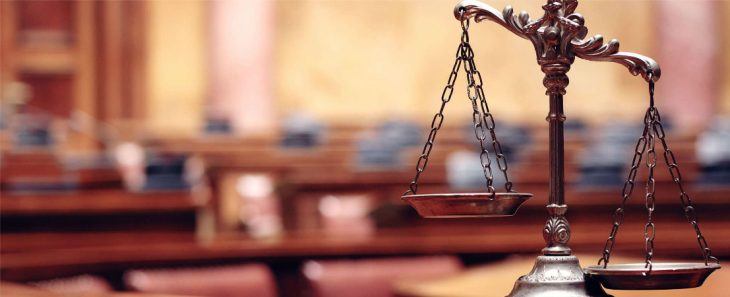Redistricting effort can collect signers by mail, but not electronically
by May 26, 2020 7:45 pm 643 views

A judge ruled May 25 that a group seeking to create a voter-approved commission to redraw Arkansas’ legislative and congressional lines after each census doesn’t have to collect signatures in person but also can’t use electronic signatures and must abide by the state’s July 3 deadline.
U.S. District Judge P.K. Holmes III issued a preliminary injunction May 25 barring the enforcement of a state law requiring signatures to be witnessed in person and also said canvassers don’t have to sign an affidavit with a notary present.
“Plaintiffs have not demonstrated that electronic signatures created on a touchscreen or with a mouse or trackpad would be of sufficient quality to allow the Secretary of State to carry out his duty to determine whether a signature ‘is obviously not that of the purported petitioner’ or ‘is illegible’,” Holmes wrote.
The changes had been sought by Arkansas Voters First, which is sponsoring a proposed constitutional amendment that would create a nine-person citizens redistricting commission if approved by voters in November. The group claimed in its suit that the government’s lockdown and social distancing in reaction to the COVID-19 pandemic made it too difficult to collect signatures for ballot access.
Arkansas Voters First still must collect 89,151 valid signatures from registered voters, or 10% of the number of voters in the 2018 governor’s race, by July 3 to make the ballot. The group asked that the number of signatures be reduced to 6% of the governor’s race, or 53,491, that the court push the deadline back to Sept. 3, and the court allow voters to sign the petition electronically rather than in person. Holmes declined to provide those remedies.
David Couch, an attorney working with Arkansas Voters First, said he was confident the group can collect the signatures by July 3.
“I think that it’s a very solid, well-reasoned, conservative opinion that recognized the issues involved and crafted a good remedy,” he said. “Of course, we’d love to have everything that you want, but this is a workable solution.”
If approved, the redistricting commission would include three Republicans, three Democrats and three independents or third party members who would redraw congressional and state legislative lines after each census. State legislative lines are redrawn every 10 years by a Board of Apportionment composed of the governor, attorney general and secretary of state. Congressional lines are redrawn by the state Legislature.
The commission’s purpose would be to prevent gerrymandering, or drawing congressional and state legislative districts to pack the minority party into as few districts as possible, benefiting the majority party.
George Shelton, a spokesperson for Arkansas Voters First, said the group will file an update with the court to see if other remedies are possible. Meanwhile, it will collect signatures using traditional canvassers, by electronically sending signature forms that can be printed and signed, by posting forms on its website, and other means.
“We’re looking at all possible options right now and hope to have a plan within the next couple of days,” he said.
Like Couch, Shelton said the group will be able to collect the signatures in time. It has a database of people who expressed an interest in signing.
“Previous ballot initiatives on other issues have been collected in 30 days,” he said. “We feel confident in our ability to do it. We recognize that it’s a lot of work to get done, but this is an issue that is overwhelmingly favorable among Arkansas voters.”
Arkansas Voters First will hire National Ballot Access, a signature collecting firm that Couch has used in the past for other ballot initiatives. Arkansas Voters First worked with another firm before finding its efforts stymied by the COVID-19 pandemic. About the time the group filed suit, it had been able to collect only 120 signatures, Couch said then.
Couch said three separate polls have shown support for the proposal in the 60% range. He said Holmes’ injunction could apply to other ballot initiative efforts.
The case featured three Arkansans, Bonnie Miller, Robert Allen, and Adella Gray, along with Arkansas Voters First versus Arkansas Secretary of State John Thurston. A remote hearing was held by Zoom May 19.
